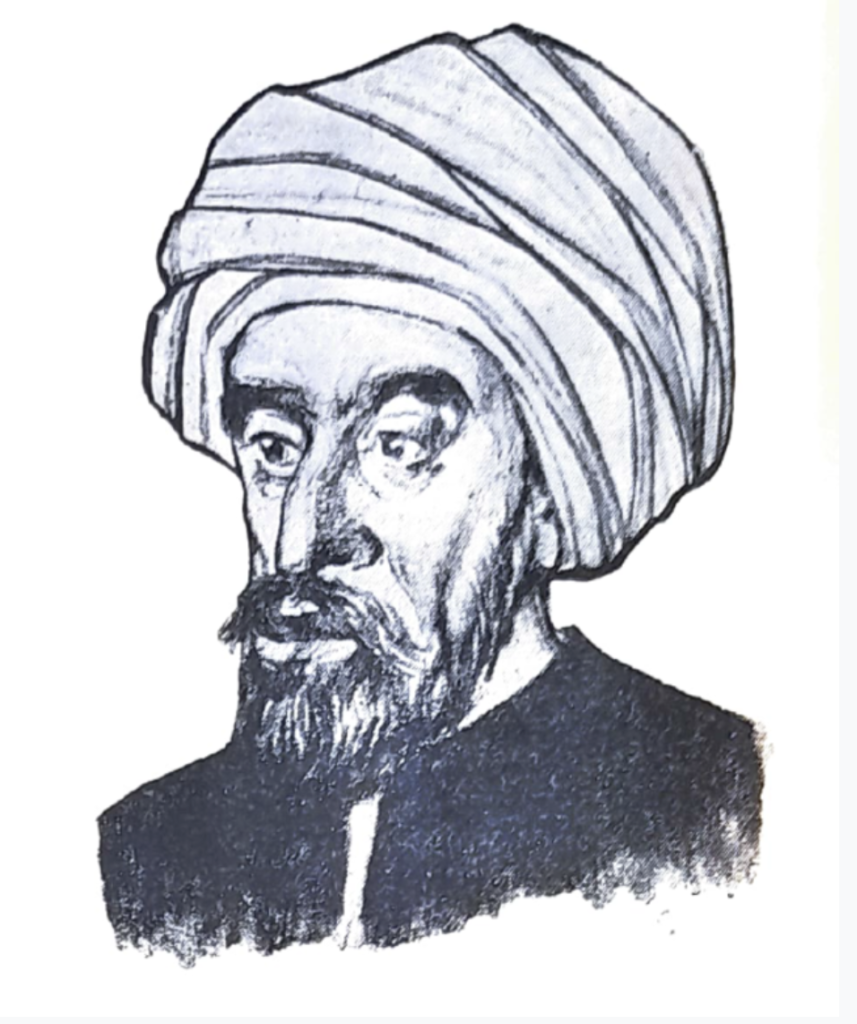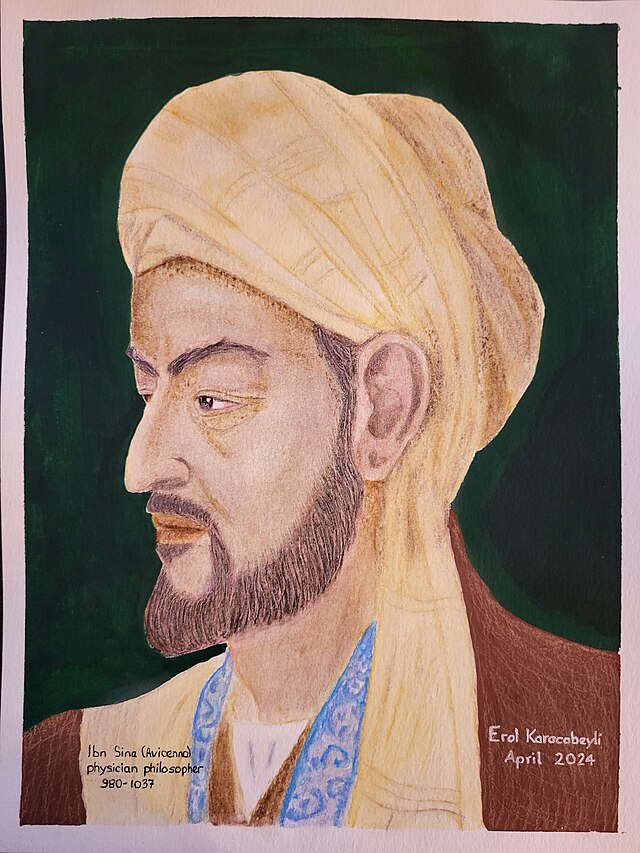Blending Worlds: The Integration of Greek Thought into Arab Medical Practices

Al-Kindi. Photo source: Wikimedia Commons
By: Rania Basria/ Arab America Contributing Writer
The history of medicine is one of constant change, as diverse cultures, ideas, and discoveries combine to reshape our health knowledge. One of the most important stages in this process happened during the Islamic Golden Age, 8th-13th century, when Arab academics and physicians not only kept but greatly enlarged Greek medical knowledge. This confluence of Greek thought and Arab innovation paved the way for modern medicine, affecting practices in both Eastern and Western civilizations. Arab America contributing writer, Rania Basria, describes this revolutionary era as a watershed point when medical ideas transformed, paving the way for breakthroughs that continue to impact the modern world.
Following the fall of the Roman Empire, Greek medical writings were distributed over Europe, particularly in the Byzantine Empire. Meanwhile, the advent of Islam in the seventh century resulted in a spread of knowledge throughout the Middle East and North Africa. Arab intellectuals, driven by a desire to study and innovate, translated Greek works into Arabic. This massive effort was motivated by the conviction that knowledge should be kept and expanded upon, a principle that heavily influenced Arab medical practices.
Important Figures
Prominent figures like Al-Kindi and Al-Razi played key roles in this translation movement. Al-Kindi, dubbed the “Philosopher of the Arabs,” combined Greek philosophy and Islamic ideas, whereas Al-Razi, often known as Rhazes in the West, made substantial contributions to clinical medicine and was an early proponent of the scientific method.
Arab physicians did not just translate Greek medical texts; they critically analyzed them, modifying and building on the concepts they discovered. One of the most prominent Greek works was Hippocrates’ “Aphorisms,” which set the groundwork for clinical observation. Arab physicians followed Hippocratic principles, emphasizing the importance of the patient’s history and clinical indicators. They went a step further, incorporating observational techniques and an emphasis on empirical data, which became trademarks of Islamic medicine.
Another important figure, Galen, whose voluminous writings on anatomy and physiology dominated medical philosophy, was also a subject of Arabic adaptation. Arab academics translated and analyzed Galen’s teachings, frequently highlighting flaws and presenting new concepts. For example, Al-Razi questioned Galenic ideas about humoral theory by emphasizing the importance of individual symptoms and environmental circumstances, setting the framework for a more customized approach to therapy.

The Expansion of Medical Knowledge
The incorporation of Greek ideas into Arab medicine resulted in the construction of hospitals and medical institutions, which served as centers of learning and invention. The Bimaristan, or hospital, became a well-known institution in Islamic cities, where physicians practiced medicine and educated students. These hospitals were more than just places to cure; they were also centers of research and education, exemplifying the Arab devotion to medical innovation.
In cities such as Baghdad and Cairo, intellectuals translated books from diverse cultures, resulting in a complex tapestry of medical knowledge. This cross-cultural exchange allowed Arab physicians to include not just Greek ideas, but also influences from Indian and Persian medicine, resulting in a more complete understanding of health and disease.
The translation movement included pharmacology-related materials. Arab physicians contributed to Greek herbal medicine by documenting the qualities and use of many plants. Ibn al-Baitar was a prominent person in this subject, and his “Book of Simple Medicaments” catalogued over 1,400 medicinal ingredients, many of which were borrowed from Greek writings but also contained indigenous flora. His study laid the groundwork for pharmacology, which would be cited in both Eastern and Western medicine for decades.
The emphasis on practical observation in Arab medicine resulted in advances in our understanding of drug interactions and dosage. This empirical method also influenced the development of surgical techniques, as practitioners began to chronicle their triumphs and failures, resulting in a wealth of knowledge that shaped future practices.
The incorporation of Greek thinking into Arab medicine was not restricted to practical applications; it also involved a deep engagement with medical ethics. Arab physicians adopted and altered the Hippocratic Oath, which emphasizes ethical practice. Scholars such as Ibn Sina (Avicenna) stressed physicians’ moral responsibilities, incorporating philosophy and ethics into their teaching.
Ibn Sina’s “The Canon of Medicine” is a major treatise that combines Greek medical knowledge with Arab inventions. This literature not only functioned as a medical reference for centuries, but it also delves into the philosophical foundations of health and disease, highlighting medicine’s holistic approach. His comments about the importance of mental health and the relationship between body and soul were groundbreaking, influencing both Eastern and Western practices.
A Lasting Impact
The legacy of Arab medicine, formed by the incorporation of Greek thinking, reverberated throughout history, affecting European medical practices during the Renaissance and thereafter. As Latin translations of Arabic books became available, European physicians had access to advanced medical knowledge, which played an important role in the creation of modern medicine.
The Arab physicians’ emphasis on observation, clinical practice, and ethical concerns paved the way for a more scientific approach to medicine. This transfer not only conserved but also modified Greek knowledge, resulting in a vibrant field focused on the complexity of human health.
The integration of Greek ideas into Arab medical procedures throughout the Islamic Golden Age demonstrates the potential of cultural exchange and intellectual curiosity. Arab physicians not only retained and translated Greek manuscripts, but also critically interacted with them, resulting in innovations that influenced the direction of medicine for centuries. This fusion of worlds resulted in a complex tapestry of knowledge that continues to impact both Eastern and Western medical traditions, highlighting the lasting significance of this amazing moment in history.
Check out our blog here!








